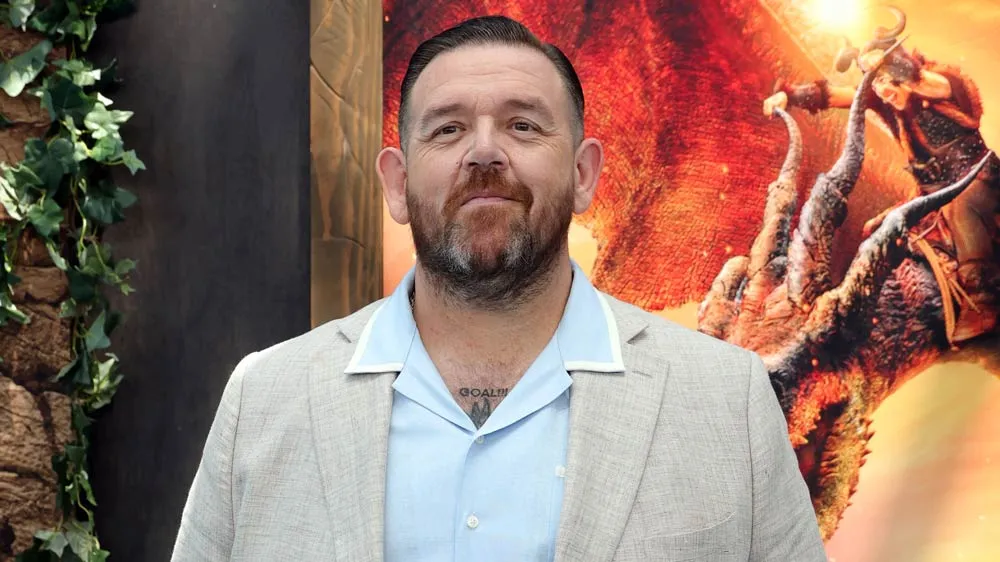June 14, 2013
Call Me Kuchu
Kilian Melloy READ TIME: 4 MIN.
"Call Me Kuchu," Lucas Verga's documentary about the consequences of legislative and religious homophobia in Uganda, opens with a celebration. It's the 9th anniversary of a gay couple; a man called Pastor Dennis offers a blessing. This would be unremarkable except the celebration is taking place in Kampala, a city in Uganda, Africa -- one of the most hostile nations in the world when it comes to LGBT people.
The documentary makes its point very clearly early on, when a gay couple being celebrated feed one another slices of cake to a soundtrack of religious gay bashing. Just who serves as an example of love for one's fellow man?
If it's love the anti-gay side claims to act from, it's tough love. "God's law is that homosexuality is sin, and God's law is very clear that the wages of sin is death," anti-gay parliamentarian David Bahati is seen saying on television. What Bahati wants, and what his law proposes, is for the Ugandan government to take "God's law" into its own hands and deal out death to gays for having sex -- and make it a criminal offense for straights not to turn in gay couples they might know about.
One of the film's most moving aspects is the universality of the stories the men and women who are interviewed have to tell: Coming out stories that could belong to young men from rural America, stories of harassment and terrorism at the hands of neighbors, stories of pressure from family members, stories of a longing for lives lived openly and with dignity. "It's one thing being outed," a lesbian says, "and another thing being denied."
But if their stories feel much like our own here in the Land of the Free, so do their travails. Indeed, Bahati's bill was introduced only after several homophobic American evangelicals, including Lou Engle and Scott Lively, addressed crowds there, telling them an assortment of inflammatory lies about gays. The documentary underscores a cause and effect here, cutting directly from Engle's anti-gay jeremiad to David Bahati's introduction, shortly thereafter, of the "death to days" bill. In a way, one interviewee suggests, Bahati's bill is just another extension of the original criminalization of homosexuality in Africa... itself an import from the West.
Though presented as a means of resistance to a moral pathogen that emanates from the West and is "un-African," the nation's anti-gay laws and attitudes are, the documentary hints, simply a new form of cultural colonialism. One exchange sums it all up pretty nicely, as a woman insists that gays and lesbians are simply born homosexual and the man she's arguing with replies that "God doesn't make people to be immoral" and illustrates his point with an inapt analogy: No one, he tells her, is born a thief. How familiar is that form of argument to American gays who, wishing to marry, find themselves debating wildly inappropriate issues like polygamy, bestiality, and child molestation, instead of the one topic they wish to address -- namely, equality for their families?
How much of this hysterical homophobia in Uganda is home grown? How much is the same sort of cynical manipulation of faith, gut feelings, and factual ignorance on the subject of human sexuality in general that we see here in the U.S. every day? There's a clue to be found in the way that Bahati claims that gays are "recruiting children into homosexuality," fear-inducing claims that come straight out of the American gay-bashing handbook.
Bahati's anti-gay bill was only one aftershock of the evangelicals' diatribe of hate. African tabloid Rolling Stone (which bears no relation to the American music magazine) began a campaign of terror against gays, publishing the names, photographs, and addresses of men it accused of being gay under a banner headline reading, "Hang Them." Later on, the paper claims that gay "generals" were responsible for terrorist bombings in Kampala -- not such a different narrative from Scott Lively's claim, in his counter-factual book "The Pink Swastika," that top Nazis were macho gays. The paper's managing editor later tells the camera that "gay rights are not human rights." Obviously, Ugandan press is liable to be of little help.
Religious and social attitudes are also deeply homophobic: Anti-gay activists sound all the familiar chimes, claiming that gays are "raping" youths, while decent straight people restrain themselves and cling to the rule of law. No gays are being beaten or harassed, they claim. This rhetoric is not only untrue -- indeed, one lesbian describes being subjected to so-called "corrective rape" -- they're about to be exploded.
To a point, all this seems pretty familiar from the "culture wars" that evangelicals brought the United States. What shocks and galvanizes the gay culture, in Uganda and internationally, is not just heinous anti-gay legislation or homophobic journalism advocating violence, but the brutal murder, by hammer, of prominent gay activist David Kato, who not only faced off with the tabloid in court, helping win an injunction against Rolling Stone, but debated the issue on national television. The film follows Kato to his mother's home, prior to his murder; we see the man fully as a person, an all too rare view even in gay-friendly documentaries, and that makes his murder all the more shocking.
Scenes like the anniversary celebration and a beauty pageant for "Miss Kuchu" offer a similar contrast. We don't just see these people under siege; we see them laughing, enjoying their lives and one another despite the ever-increasing dangers of doing so. Just being gay is already illegal in Uganda, but that doesn't stop the lively nature of gay African men and women.
Seen in that light, Bahati's attempt to put gays to death takes on grim new layers of cruel and inhuman meaning. The fact that Bahati has ties to anti-gay American evangelical groups only sharpens the inherent critique of his bill and the way that Engle and Lively arguably helped prepare the ground for murderous legislation, and murderous violence, when they took American-style intolerance to Uganda.
"A luta continua," more than one person says in this documentary -- the struggle continues. Bahati's bill has yet to pass, and the international community has made it quite clear that Uganda has more to lose than it could possibly gain by passing it. But the bill, like hatred itself, hangs on, resistant to reason, logic, Christian compassion, and modernity.
Kilian Melloy serves as EDGE Media Network's Associate Arts Editor and Staff Contributor. His professional memberships include the National Lesbian & Gay Journalists Association, the Boston Online Film Critics Association, The Gay and Lesbian Entertainment Critics Association, and the Boston Theater Critics Association's Elliot Norton Awards Committee.






